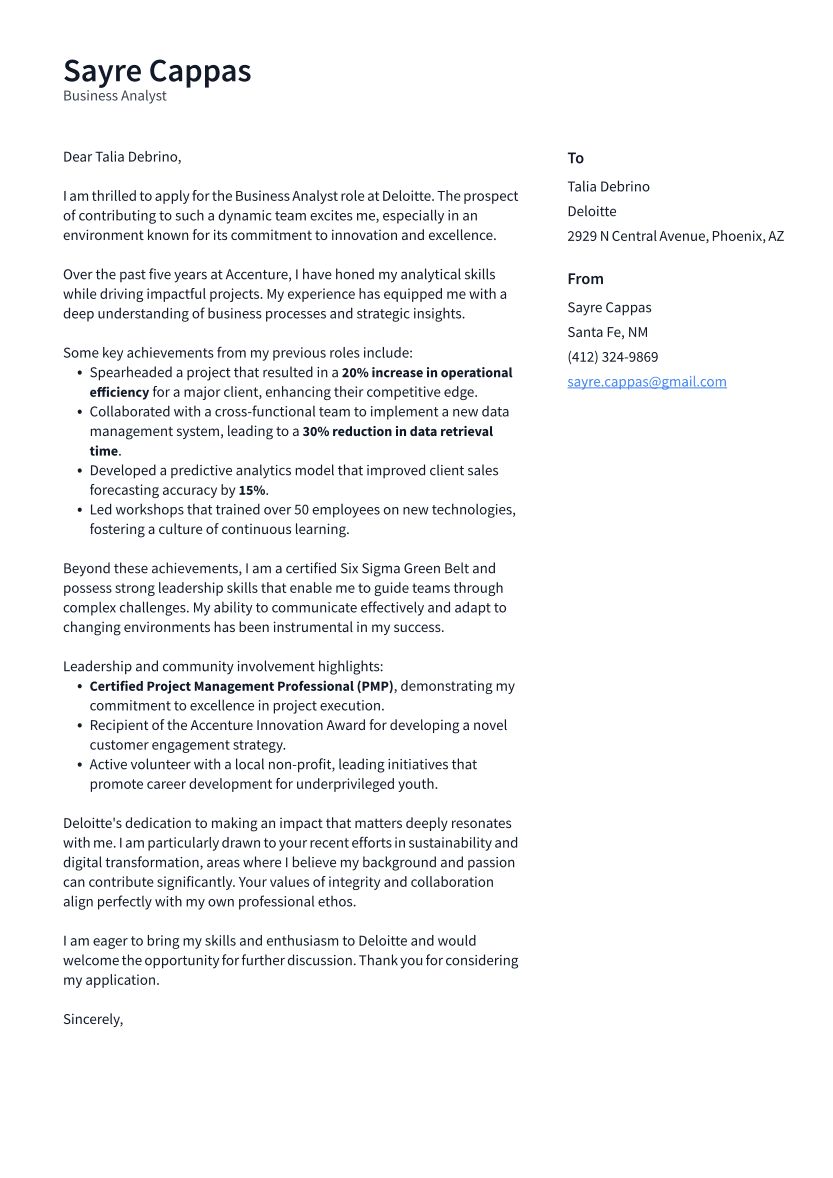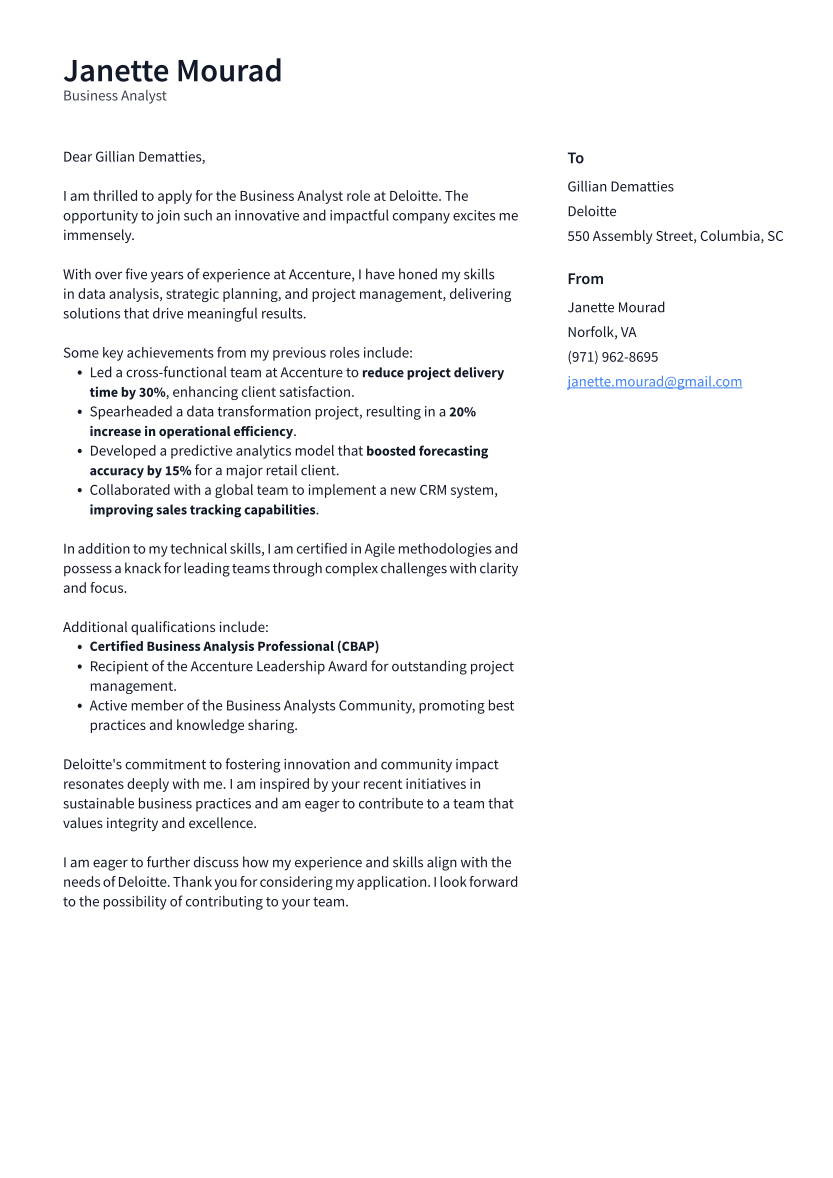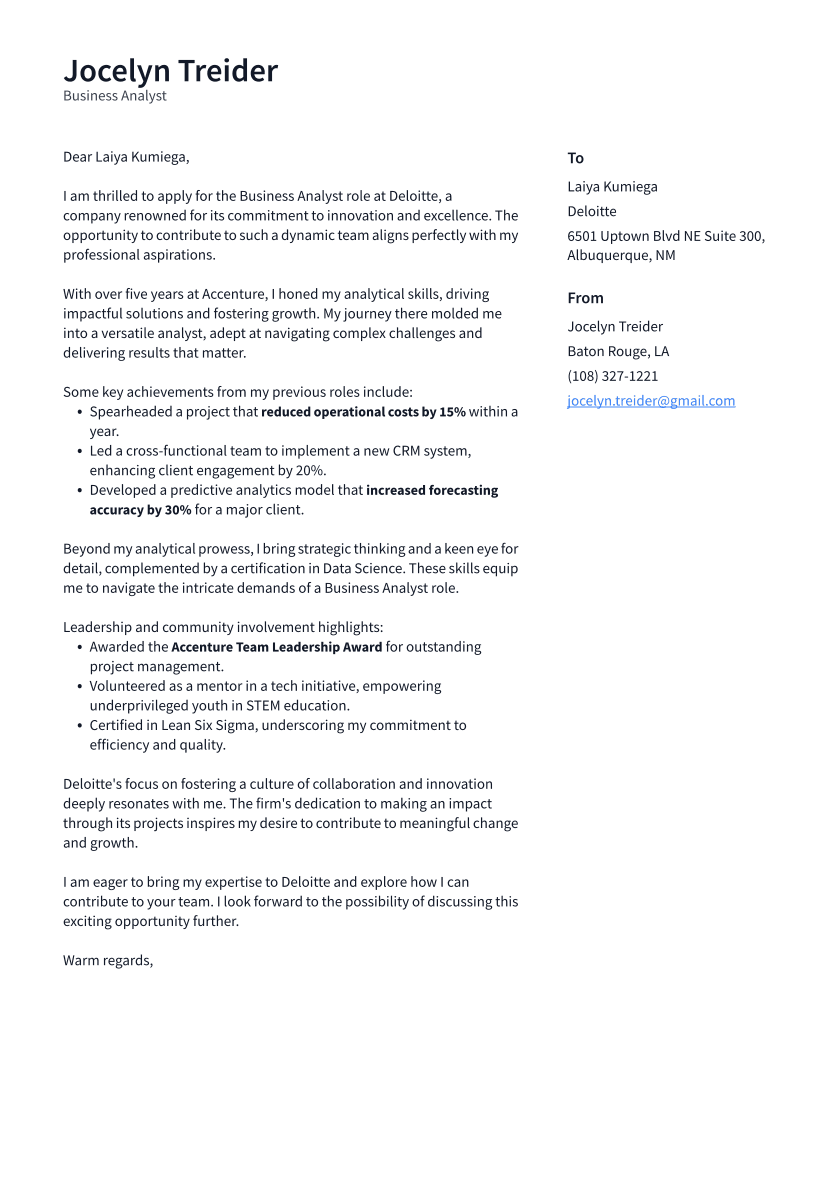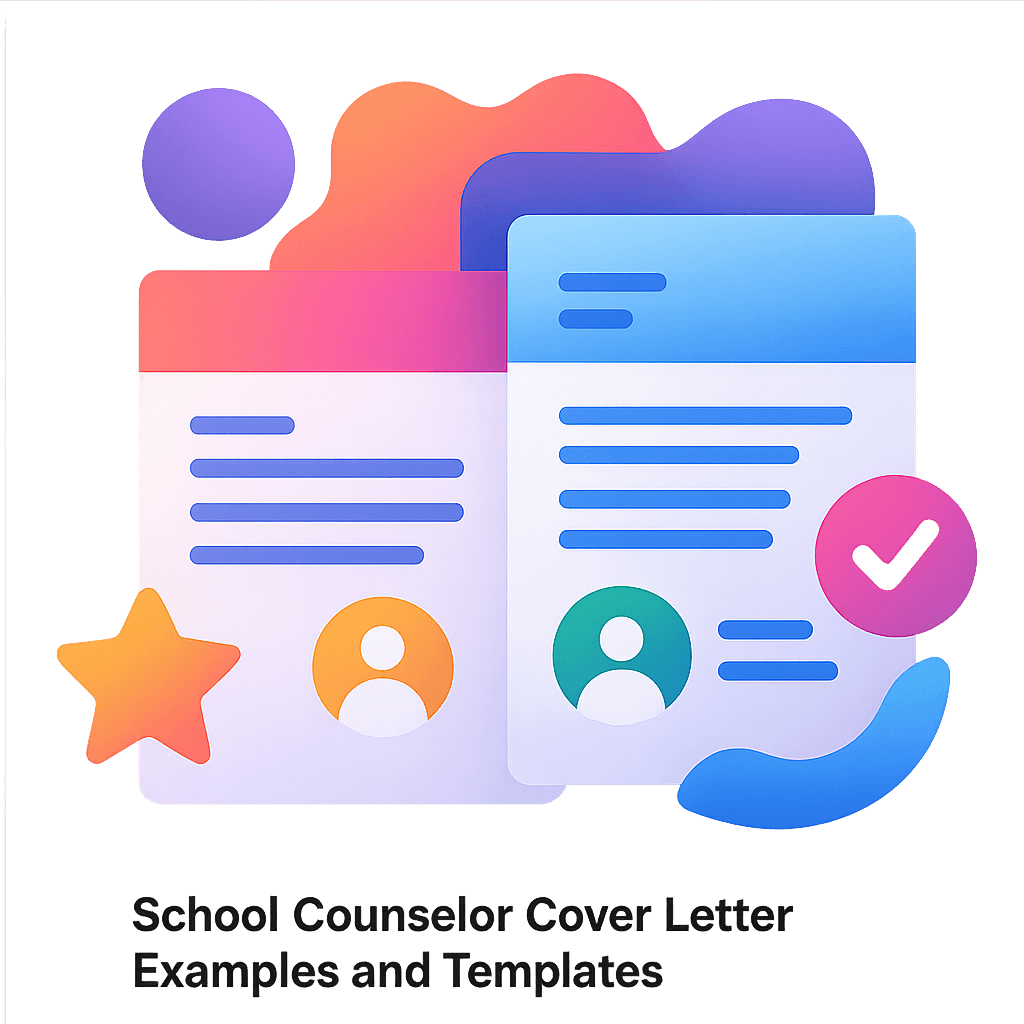Business Analyst Cover Letter Examples and Templates

A cover letter for a Business Analyst role isn’t just paperwork—it’s your chance to moonwalk your skills right onto the hiring manager’s desk. This article spills the secret sauce behind crafting a letter that showcases more than just buzzwords. Expect tips, tricks, and perhaps a dash of cunning to help you land that analyst gig.
The Importance of a Strong Cover Letter for a Business Analyst
A tailored cover letter doesn’t just echo your resume—it breathes life into your application, giving context to your skills and uncorking your passion for that particular company’s challenges. While a resume ticks off experience and skills, the cover letter knits those strengths to the business analyst role, spotlighting how you think, problem-solve, and communicate. Employers notice candidates who connect their experience directly to the company’s needs rather than trotting out a boilerplate list. A thoughtful cover letter whispers, “I understand your goals, and here’s exactly how I’ll help you reach them.”
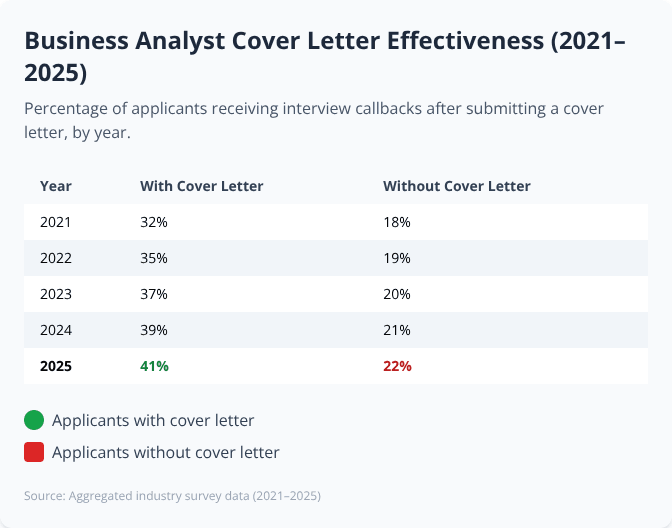
Sample Cover Letter for Entry-Level Business Analyst
It grabs attention right away—clear, focused, and eager. You can feel the genuine drive behind every line.
Sample Cover Letter for Mid-Level Business Analyst
It lands punches where it counts—clear results, focused experience, none of the usual fluff. You see what this person can do without having to dig.
How to Write a Senior-Level Business Analyst Cover Letter
This cover letter slices right to the heart of what matters—measurable results and sharp business instincts. Every line shows they've actually done the job, not just read about it.
Top Tips to Make Your Business Analyst Cover Letter Shine
Pro Tip: Every company speaks its own dialect of challenges, so tailoring your Business Analyst cover letter not only proves you’ve done your homework, it lets you show—line by line—how your specific skills will solve their specific problems.
DO'S
- Highlight relevant achievements that match the role’s requirements.
- Showcase your problem-solving skills with specific examples.
- Keep your tone professional yet enthusiastic about the opportunity.
DON'TS
- Don't repeat your resume word-for-word.
- Don't use vague clichés or jargon without meaning.
- Don't send a generic letter lacking specifics about the company or role.
